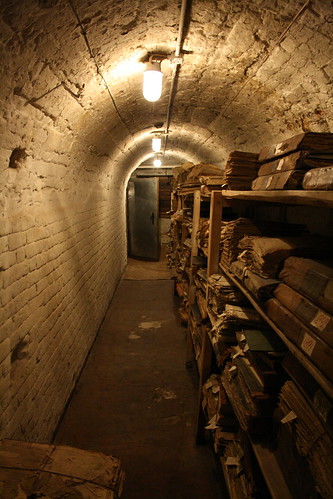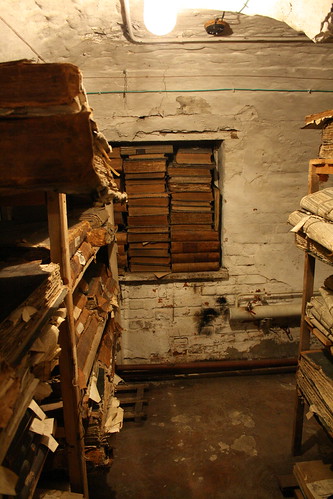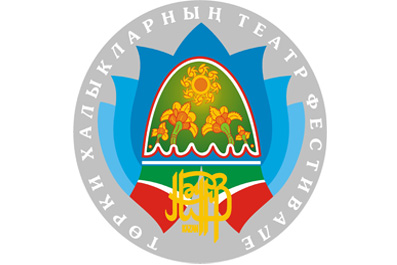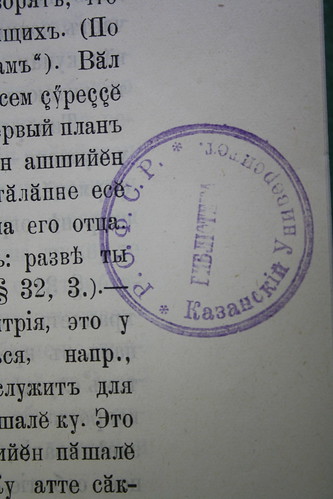
The volumes at right are regional newspapers from the 1850s to the early 1900s.
Following up on some leads on early Tatar theater (drawn from the bibliographies of the works below, which I discovered through Madina Goldberg’s recent dissertation on the topic at Michigan), I was directed to the closed stacks to consult a bound volume of newspapers. Usually, patrons fill out request slips, and the necessary materials are brought to a reading room for consultation. In this case, I was introduced to a very nice little man who proceeded to guide me through the closed stacks of the old building of the Lobachevka Library at Kazan University. When I go back there soon, I’ll see about taking more photos — it’s like stepping back in time about 100 years or so.
For now, I have two shots of the corridor in the basement below the library where my newspaper was being kept, at right here. I’m sure that the whole arrangement here would cause an American archivist or preservations specialist nightmares, but I felt incredibly privileged to be admitted to this enchanting space. My escort left me alone with the newspapers while I stood in the corridor and looked for the right issues and took my notes, reinforcing the basic decency and trust that I’ve met at every turn in my archival and library work.

Some shelving solutions look worrisome. I very much hope that no misfortune befalls this building.
But I found what I was looking for — more details on how the first professional Tatar theater troupe was received by Nizhny Novgorod society when they came to perform at the Nizhny Novgorod Fair for the first time in July-August 1907.
Continue reading →
 Kazan’s stages again welcome the biennial Nauruz International Theater Festival of Turkic Peoples, which opens tomorrow, Monday, May 30 and runs through Friday, June 3. In just four days, theater troupes from across the Turkic world will perform 33 plays in 15 different languages, from Gagauz (Moldova) to Tuvan (Russia), from Khakass (Russia) to Turkmen. Continue reading
Kazan’s stages again welcome the biennial Nauruz International Theater Festival of Turkic Peoples, which opens tomorrow, Monday, May 30 and runs through Friday, June 3. In just four days, theater troupes from across the Turkic world will perform 33 plays in 15 different languages, from Gagauz (Moldova) to Tuvan (Russia), from Khakass (Russia) to Turkmen. Continue reading 


